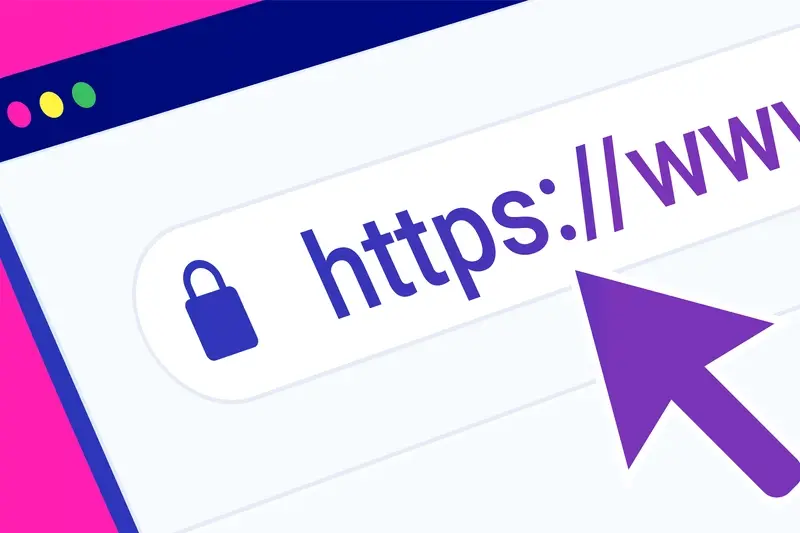Should I Build An App Or Focus On My Website First?
Every single day, thousands of business owners stare at their computer screens wrestling with the same question: should I build a mobile app or focus on my website first? It's a decision that can make or break a startup's success, and frankly, most people get it completely wrong. They either rush into expensive app development when a simple website would do the trick, or they stick with an outdated website whilst their competitors dominate the mobile space.
The truth is, there's no one-size-fits-all answer to the app vs website debate for startups. I've seen businesses pour their entire budget into a flashy app that nobody downloads, and I've watched others miss massive opportunities because they underestimated the power of mobile apps. The key isn't choosing sides—it's understanding which option aligns with your specific business goals, target audience, and available resources.
The biggest mistake startups make is treating apps and websites as competing options rather than complementary tools that serve different purposes
This guide will walk you through the real factors that should influence your decision. We'll look at budget planning, user experience requirements, development timelines, and most importantly, when each option makes genuine business sense. By the end, you'll have a clear framework for making this choice based on facts, not guesswork.
Understanding the Core Differences Between Apps and Websites
Right, let's get something straight from the start—apps and websites aren't just different versions of the same thing. They're completely different beasts, and understanding this will save you from making a costly mistake later on.
Where People Use Them
Websites live in browsers. Chrome, Safari, Firefox—you know the drill. People type in your web address or find you through Google, and boom, they're on your site. Apps live on phones and tablets after someone downloads them from an app store. Once installed, your app gets its own little icon on their home screen, which means you're competing for space with Instagram, WhatsApp, and every other app they've got.
How They Actually Work
Here's where it gets interesting. Websites need the internet to work properly—no connection means no website, or at least a very broken one. Apps can work offline (well, the good ones can). They can access your phone's camera, send push notifications, use your location, and tap into all sorts of device features that websites simply can't touch. This is why banking apps feel so much smoother than mobile banking websites; they're built specifically for your device rather than trying to work on every browser under the sun.
When Websites Make More Sense for Your Business
Let me be straight with you—most startups should build their website first. I know that's not what you want to hear if you're dreaming of seeing your app in the App Store, but hear me out. Websites are your digital shopfront; they're where people go to find out who you are and what you do. Without a solid website, you're basically invisible online.
If your business relies on search traffic, content marketing, or getting found by customers who don't know you exist yet, then a responsive website wins every time. Apps are brilliant for engagement, but they're rubbish at discovery. People can't stumble across your app whilst searching for solutions like they can with your website. Plus, websites work on every device without needing downloads or updates.
Budget Reality Check
Here's the thing about app vs website for startups—websites cost less and deliver results faster. A responsive website can handle mobile users just fine, and you'll have money left over for marketing. Many successful businesses run entirely on websites for years before they need an app.
Start with a website if you need to prove your business concept first. You can always build an app later when you've got steady revenue and clear user demand.
The mobile app vs responsive website debate often comes down to what your customers actually need, not what sounds more exciting to build. If you're wondering why customers would choose an app over a website, the answer usually relates to convenience and functionality rather than novelty.
Why Some Businesses Need Apps First
Right, let's talk about the flip side. While many businesses do better starting with a website, there are some that really should jump straight into app development—and I mean really should, not just because it sounds trendy or modern.
The clearest example is when your entire business model revolves around mobile usage. Think about food delivery services, ride-sharing platforms, or fitness tracking apps. These businesses live and breathe through mobile interactions. People aren't going to open their laptop to order a burger or track their morning run; they want that functionality in their pocket.
Who Should Go App-First
Location-based services are another perfect example. If your business relies on GPS functionality, push notifications for nearby offers, or real-time updates based on where someone is standing, you need that native mobile experience. Dating apps, local discovery platforms, and emergency services all fall into this category.
- Businesses requiring camera integration for core functionality
- Services that need push notifications for time-sensitive alerts
- Platforms requiring offline functionality
- Companies where users spend significant daily time in the app
- Services that integrate with device hardware like sensors or contacts
The key question is simple: would your users find it weird or frustrating to use your service through a web browser? If the answer is yes, you probably need to start with an app. Before diving in though, it's worth asking yourself whether your business will genuinely benefit from a mobile app rather than just following trends.
Budget Planning and Resource Allocation
Money talks, and when it comes to choosing between an app and a website, your budget will have a loud voice in the conversation. I've worked with startups operating on shoestring budgets and others with funding that makes my eyes water—but here's what I've learned: it's not always about how much you have, it's about spending it wisely.
A professional website can cost anywhere from £3,000 to £15,000 depending on complexity, whilst a mobile app typically starts at £20,000 and can easily climb to £100,000 or more. That's quite a difference! But don't let those numbers scare you off apps entirely—sometimes the higher investment pays off faster.
The Hidden Costs Nobody Talks About
Here's where things get interesting. Websites need hosting, security updates, and content management. Apps need store submissions, device testing, and ongoing platform updates. Both need marketing to get users through the door.
The biggest mistake I see startups make is budgeting for development but forgetting about marketing—you can build the best app in the world, but if nobody knows it exists, you've wasted your money
For most startups, I recommend starting with a solid website first. It gives you a foundation to test your market, gather user feedback, and prove your concept before investing in app development. You can always build an app later when you've got steady revenue coming in.
Timeline Considerations and Development Speed
Right, let's talk about time—because nobody wants to wait forever for their digital presence to go live! If you need something up and running quickly, a website wins hands down. A basic website can be built and launched in a matter of days or weeks, depending on complexity. Even a sophisticated website with custom features rarely takes more than a few months.
Mobile apps? Well, they're a different beast entirely. A simple app might take 2-3 months if you're lucky, but most apps I work on take anywhere from 4-8 months to complete properly. That's just the development time—it doesn't include the app store approval process, which can add another week or two (sometimes longer if Apple or Google aren't happy with something).
Why Apps Take Longer
Apps require more moving parts than websites. You're building for different devices, different screen sizes, and different operating systems. Plus there's testing—lots and lots of testing. Nobody wants their app crashing on launch day!
Here's something people often forget: once your app is built, you still need to market it and get people to download it. Understanding effective mobile marketing strategies becomes crucial for actually getting users to find and download your app from crowded app stores.
User Experience and Technical Requirements
When weighing up app vs website for startups, the user experience differences are massive—and I mean that quite literally. Your website visitors are typically browsing, researching, maybe comparing options. They're in discovery mode. App users? They want to get stuff done quickly. They expect smooth interactions, instant responses, and features that work offline.
Let's talk technical requirements because this is where things get interesting. A responsive website needs to work across different browsers and screen sizes, which sounds simple but can be surprisingly tricky. Apps need to integrate with device features like cameras, GPS, push notifications, and phone storage. If your startup relies on any of these native features, that mobile app vs responsive website debate becomes much clearer.
Performance Expectations
Here's what I've learned from working with startups: people are far less patient with slow apps than they are with websites. A website that takes three seconds to load? Annoying but acceptable. An app that stutters when you tap buttons? Deleted within hours. Apps live on people's home screens, so they become part of their daily routine—which means the performance bar is set much higher.
Test your app idea as a simple website first. If people aren't engaging with the basic concept online, they definitely won't download an app for it. Understanding what makes stellar apps stand out can help you avoid building something mediocre.
Conclusion
After working with hundreds of businesses over the years, I've learnt that there's no magic formula for deciding between apps and websites—it really comes down to your specific situation. Some businesses genuinely need an app from day one; others would be mad to build one before sorting their website out properly. The trick is being honest about where you are right now and what your users actually need.
If you're still not sure which route to take, start with your website. Nine times out of ten, that's the right choice. Websites are cheaper, faster to build, and reach more people. You can always add an app later when you've got the budget and a clear reason why your users would want it. I've seen too many businesses blow their entire budget on an app that nobody downloads while their website looks like it was built in 2005.
The best part? This isn't a permanent decision. Technology moves fast, and what makes sense for your business today might change in six months. Keep listening to your users, watch your analytics, and be ready to adapt. Whether you choose an app or stick with your website, make sure it's solving a real problem for real people—that's what separates successful digital products from expensive mistakes.
Share this
Subscribe To Our Learning Centre
You May Also Like
These Related Guides

How Long Does It Take To Convert My Website Into a PWA?

What's the Difference Between App Analytics and Website Analytics?



